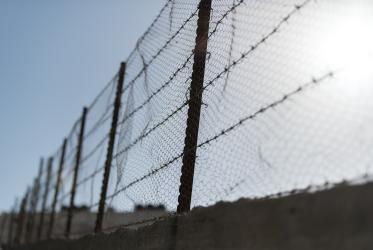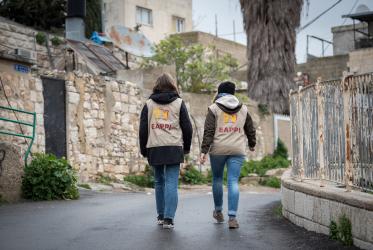Displaying 41 - 60 of 526
Violence against Palestinians is rising in the West Bank
16 November 2023
A Guide for Churches on the Prevention of Obstetric Fistula
26 October 2023
“The occupation can’t last forever”
25 October 2023
“They want to live without fear and constant harassment”
25 October 2023
Kids Feel Safe Going to School when EAs are Present
23 October 2023
Philippines delegation meets with WCC to discuss human rights
19 October 2023








